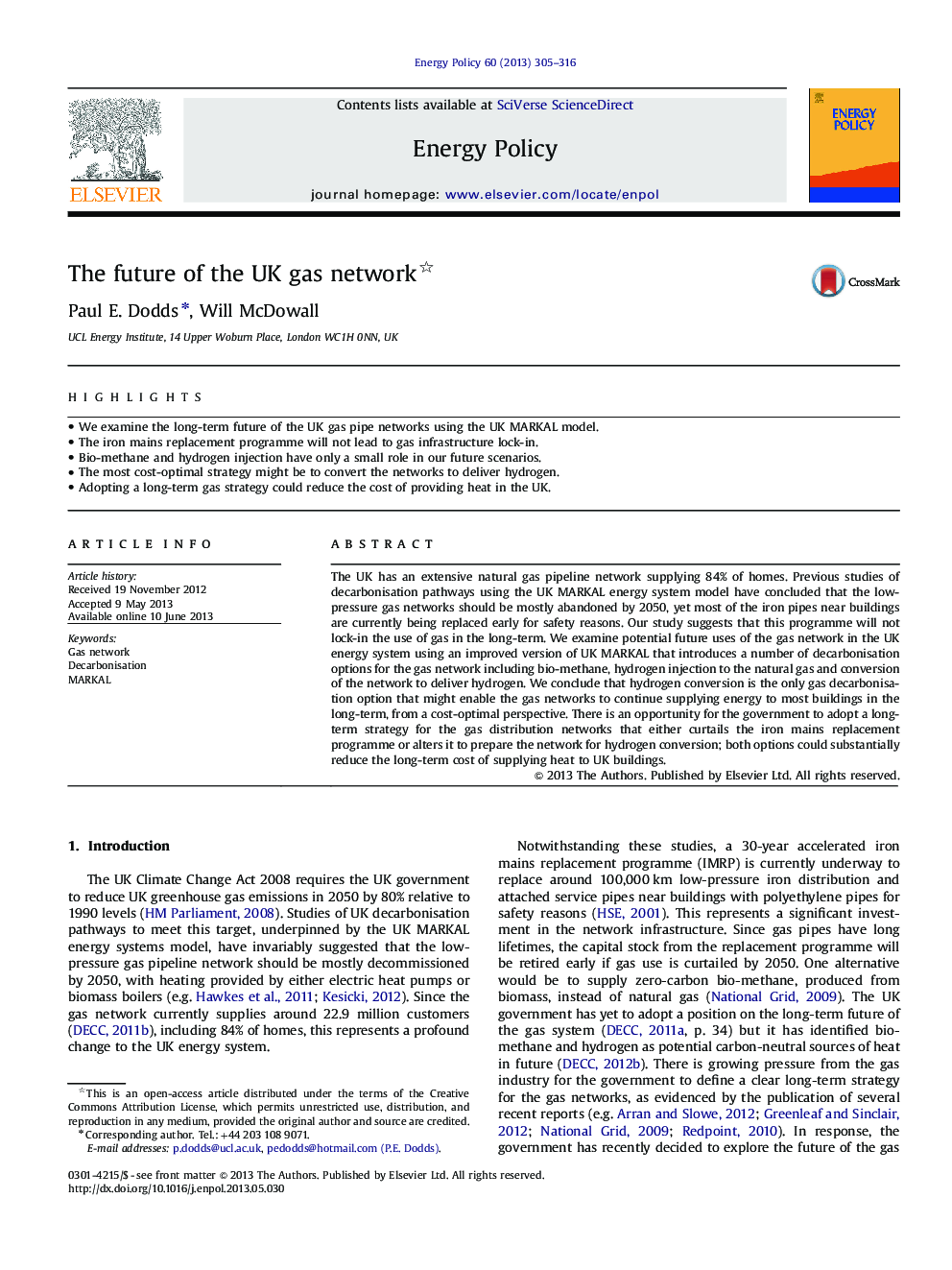| Article ID | Journal | Published Year | Pages | File Type |
|---|---|---|---|---|
| 7404533 | Energy Policy | 2013 | 12 Pages |
Abstract
The UK has an extensive natural gas pipeline network supplying 84% of homes. Previous studies of decarbonisation pathways using the UK MARKAL energy system model have concluded that the low-pressure gas networks should be mostly abandoned by 2050, yet most of the iron pipes near buildings are currently being replaced early for safety reasons. Our study suggests that this programme will not lock-in the use of gas in the long-term. We examine potential future uses of the gas network in the UK energy system using an improved version of UK MARKAL that introduces a number of decarbonisation options for the gas network including bio-methane, hydrogen injection to the natural gas and conversion of the network to deliver hydrogen. We conclude that hydrogen conversion is the only gas decarbonisation option that might enable the gas networks to continue supplying energy to most buildings in the long-term, from a cost-optimal perspective. There is an opportunity for the government to adopt a long-term strategy for the gas distribution networks that either curtails the iron mains replacement programme or alters it to prepare the network for hydrogen conversion; both options could substantially reduce the long-term cost of supplying heat to UK buildings.
Keywords
Related Topics
Physical Sciences and Engineering
Energy
Energy Engineering and Power Technology
Authors
Paul E. Dodds, Will McDowall,
